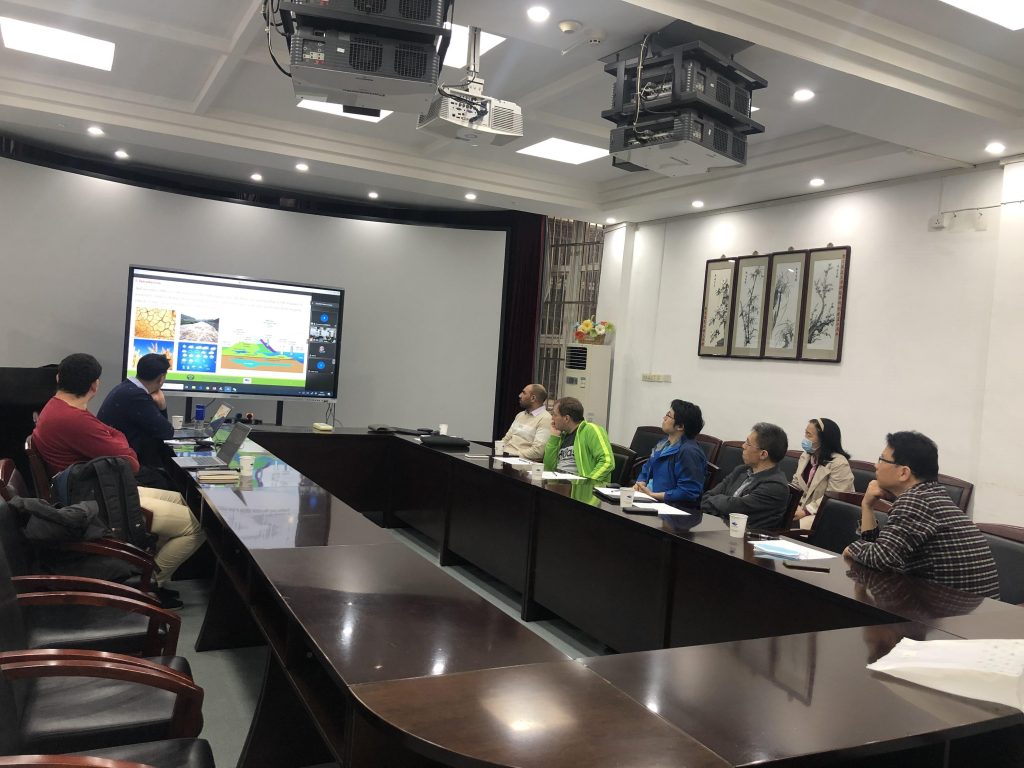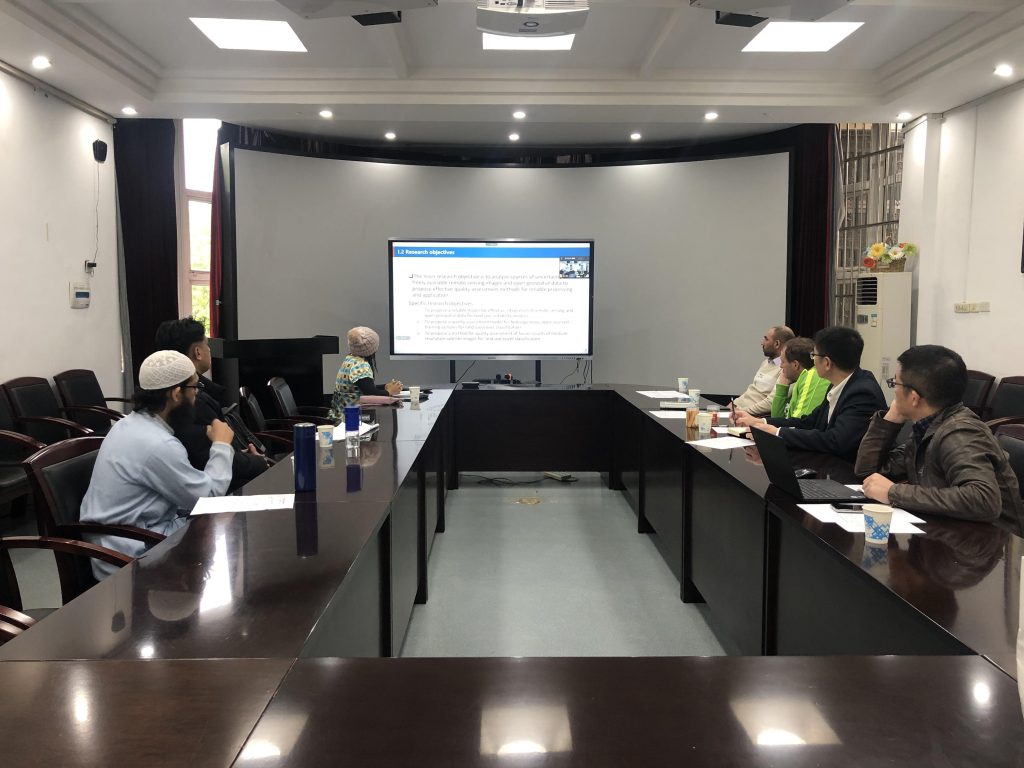The State Key Laboratory of Information Engineering in Surveying, Mapping and Remote Sensing (LIESMARS) officially organized the pre-defenses of doctoral dissertations on April 1, 2021, to strengthen the management of crucial aspects of doctoral program and improve the quality of degree dissertations. Five international doctoral students participated in this pre-defense, three of which were on campus and two presented remotely from their home countries due to the epidemic. The pre-defense was conducted in the online + offline way. The live broadcast was open to all teachers and students at LIESMARS through Tencent Meeting.

Prof. Timo Balz, the vice director of the International Academy of GeoInformatics (IGEO), hosted the pre-defense; other professors were invited as members of the pre-defense committee. The doctoral students submitted their degree dissertations to the pre-defense committee in advance. Their presentations focused on the relevant research progress and innovative achievements. Based on the dissertations and presentations, the committee recommended modifications, made comments, and offered suggestions for the standardization of the dissertations, highlighting innovations; drawing pre-defense “pass” or “fail” conclusions.
The doctoral students who passed the pre-defense will modify their dissertations, following the opinions and suggestions of the committee. After a detailed description of the modification of the dissertation and with the consent of the supervisors, the doctoral students can then enter the follow-up degree application process. The doctoral students who have not passed the pre-defense must make major modifications to their dissertations. With the consent of the supervisors, they can apply to participate in the pre-defense in the second half of this year. Only when they pass pre-defense, can they can enter the follow-up degree application process.

The pre-defense of doctoral dissertations can help students understand their dissertations more objectively, so as to adjust and optimize their research work and improve the quality of the dissertations. At the same time, it also helps LIESMARS strengthen supervision and grasp the progress of doctoral dissertations in a timely way, thus preventing academic misconduct, establishing a good academic atmosphere, and promote the improvement in the quality of doctoral cultivation.